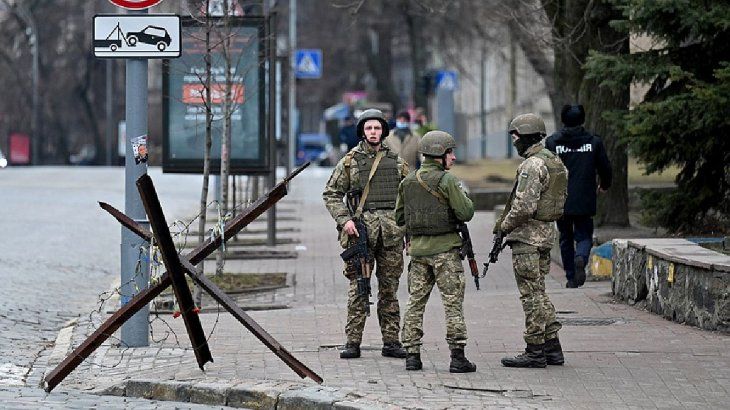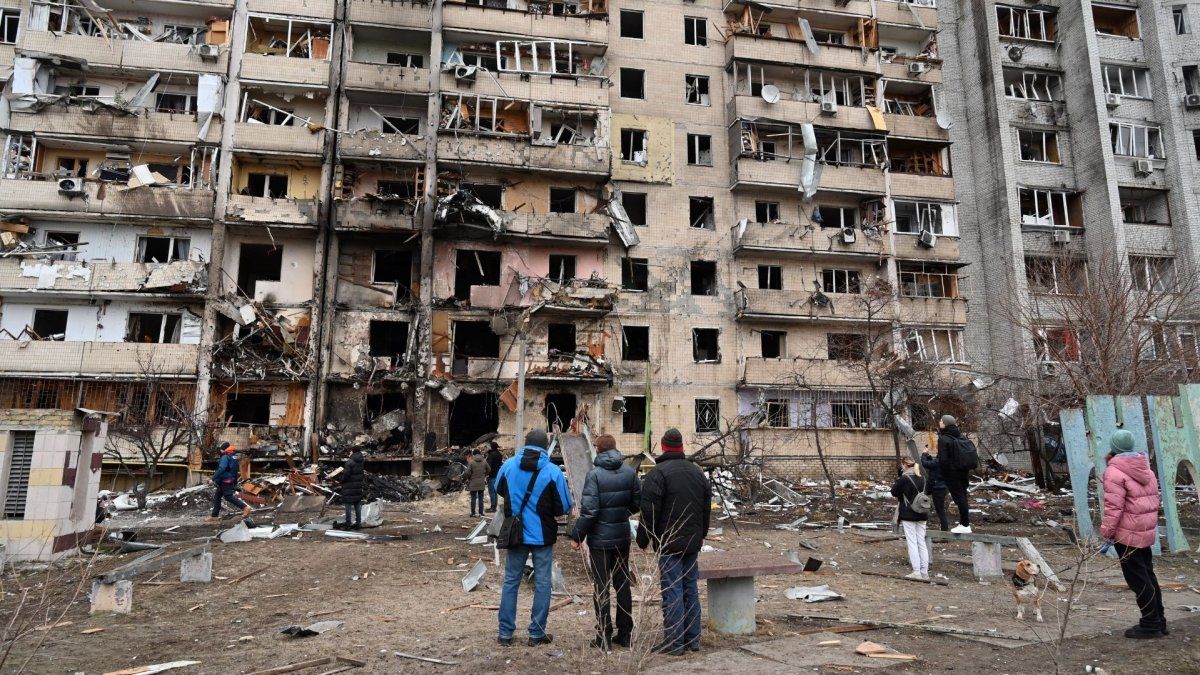There are, then, two marked planes of influence of such a crisis.
In the short term, the military event in northern Europe has already been added to our own agenda (which included an unbalanced macroeconomy, mediocre productive indicators for years, negotiations with the IMF already in the last instance, and social problems). As if to remind us that what happens beyond our borders does not really happen outside and that there is no longer a difference between far and near in today’s world, we have been measuring the influence of that war on our situation for days.
We can, thus, make accounts in relation to the rise in prices of agricultural commodities that can allow Argentina to charge more per exported ton even when production is affected by the weather. Although we must sift through this because energy prices also rise, which Argentina must import and had been getting it at very advantageous prices until recently. And, at the same time, we can ask ourselves if the conditions for a political discussion (not recommended) about the appropriation of the extraordinary income of agro-exporters are not restarted and the investment conditions for oil and gas production can once again be a topic of discussion. . Everything, in addition to the problem of energy and fuel subsidies that may be left out of the expected reduction if local costs rise due to external contributions. To which, additionally, we can add that the problem does not refer only to Argentina, but to the negotiation with the International Monetary Fund, which will not only have to agree on a program with Argentina (which is expected to include reduction of subsidies) but will periodically attend to the review of compliance with what is agreed from the first signature. And – as if that were not enough – we can also ask ourselves if upward international prices will also generate additional upward pressure on inflation.
But there is another point of analysis, less circumstantial, to which we can turn. Geopolitical movements are marking new conditions on the international economy.
Joe Biden Russia.jpg
A few months ago, President Biden divided the world between democracies and autocracies.
Telam
Now, before the advance in Ukraine, we have seen that the US, the UK and the EU have reacted with economic sanctions against Russia. But geopolitics putting pressure on the economy is something we have been seeing for some time now. Starting with the controversies between the United States and China, but noting that they were completed by friction between China and the European Union (which stopped the progress of a bilateral investment protection agreement), or between the Asian giant and Australia (whose exports to China were restricted for political reasons). To which must be added that reformulation of NAFTA promoted by then President Trump, and Brexit, which not only meant the departure of the United Kingdom from the Union but also the creation of a “Global Britain” policy that is leading the United Kingdom to be the country that in the last 18 months concluded the most free trade agreements on the planet with new partners (and not already in the EU). You can also take note of the AUKUS project (Australia, the United Kingdom and the United States) that militarily altered the Pacific, the implementation of the largest free trade area in the world in Asia (RCEP) and the pact a few months ago between China and Russia for supply between the two countries.
Something is happening in the formation of new geopolitical axes. And it has a significant impact on the international economy.
The attractive thing about it is that, unlike what was happening on the planet in the 20th century; In addition, there is now an additional parallel reality, in the field of the economy: it happens that many companies now operate through the so-called new digital geographies (very different from the physical ones, and within which, more than geopolitics, there is a new economy of intangibles as the main engine of production). The Internet has become a new continent that has abandoned the old function of (merely) allowing us to access content and has become a space in which to negotiate, decide to invest, form economic knowledge, buy and sell, collect and pay ; and alliances between companies are activated (the “global innovation networks” referred to by WIPO). And even the telecommuting that Richard Baldwin draws is generated.
Ukraine soldiers street.jpg

Given the advance in Ukraine, we have seen that the US, the UK and the EU have reacted with economic sanctions against Russia
How is the old reality of political power in a territory and regional influence combined with a new supraterritorial economy?
In 2021, international trade between all countries reached a historical record of 28 billion dollars and the stock of foreign direct investment operating in the countries exceeded 41 billion dollars; which shows that the global economy (increasingly protected by supranational technology) advances while politics and geopolitics play their game.
How do both agree?
The traditional reality shows, on the one hand, in Ukraine, advances in the territory as a manifestation of power; but on the other hand, the new economy exhibits cloud companies and planetary consumers on its side.
An unprecedented space opens between them (both realities) from now on.
It is possible that a meeting point between them is the generation of new alliances between countries that organize their conditions for the development of the new economy based on common parameters (within those alliances). And that the world tends to form groupings of countries according to its models in terms of individual rights, business autonomy, respect for contracts, economic openness, political democracy, human rights, rule of law.
And that this consequently leads countries like ours to the need to exert some greater diplomatic effort than what has been required of us up to now.
Economic internationality is difficult to reverse. From now on there may be groups in international communities, axes of power, integration forces on one side and the other, alliances of countries and regions; but isolated national economies can no longer be self-sufficient for reasons of technology, demand, consumer globalization and scale.
Nothing, therefore, happens far away.
On the one hand we can make accounts about the short-term impact on Argentina of the Russian invasion of Ukraine. But on the other hand, it is convenient to start thinking about future Argentine action in the face of a new imminent scenario, a complex map that will integrate the new global economy, unstoppable, with geopolitical challenges.
Which will require a new diplomatic and international acumen.
International business specialist. President of the ICC (International Chamber of Commerce) in Argentina
Source: Ambito




